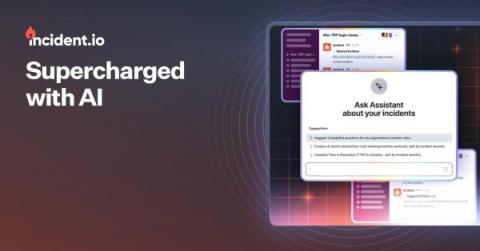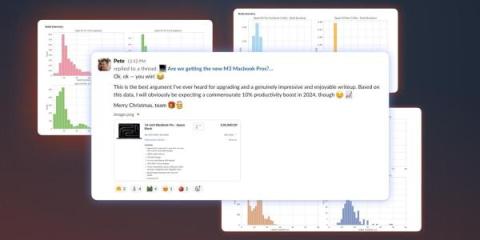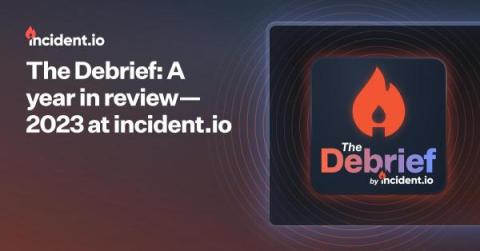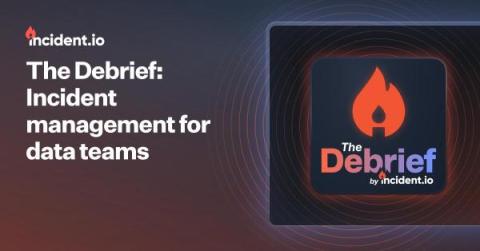Operations | Monitoring | ITSM | DevOps | Cloud
Latest Posts
Supercharged with AI
Debugging Go compiler performance in a large codebase
As we’ve talked about before, our app is a monolith: all our backend code lives together and gets compiled into a single binary. One of the reasons I prefer monolithic architectures is that they make it much easier to focus on shipping features without having to spend much time thinking about where code should live and how to get all the data you need together quickly. However, I’m not going to claim there aren’t disadvantages too. One of those is compile times.
Reflecting on a momentous 2023 at incident.io
2023 at incident.io was a year to remember. While it's easy to be cyclical about proclaiming that every year was better than the last, a few things stand out that made 2023 truly a year for the books. TL;DR, a lot happened! Especially when you consider that a lot of things didn't make the list above. So as we turn the page to 2024, we wanted to take a moment to reflect on the transformative year that was 2023, not only for us but our customers as well.
Setting the foundations for on-call that's fair, balanced, and human-focused
Whenever you're providing a service to businesses or individuals that they rely on, it's important to make sure that it's up and running as much as possible without disruptions. But the reality is that, despite your best efforts, downtime does happen. Regardless of when incidents strike, whether it’s 2 PM in the middle of the working day or 2 AM, it's important to have people available to diagnose and resolve issues as soon as possible.
Tracking developer build times to decide if the M3 MacBook is worth upgrading
All incident.io developers are given a MacBook which they use for their development work. That meant when Apple released the M3 MacBook Pros in October, people naturally started asking questions like “wow, how much more productive might I be if my laptop looked that good?” and “perhaps we’d be more secure if our machines were Space Black 🤔” Pete’s (our CTO) response to this was “if you can prove it’s worthwhile, we’ll do it”
The Debrief: A year in review-2023 at incident.io
What a year 2023 was at incident.io! While it's hard to summarize 365 days into just a few sentences, a handful of moments stood out from this transformative year: So as we close the curtain on a momentous 2023, we sat down with the three co-founders of incident.io—Chris, Stephen, and Pete—to do a bit of reflection on the wild ride that was this year.
All I want for Christmas... from Slack
When declaring and responding to an incident with incident.io, most of your interactions with our product will go via Slack. You might configure your forms in our web dashboard, but the responder using them to declare an incident is most likely doing so from a Slack modal, and the incident announcement will be posted as a Slack message. This means a lot of our product design falls within the constraints of what we can build using Slack’s block kit.
incident.io - now available in AWS Marketplace
We're pleased to announce incident.io can now be purchased through the AWS Marketplace!
The Debrief: Incident management for data teams
If you're on a data team, have you ever considered using an incident management tool to respond to pipeline issues? If the answer is no, then you might want to check out this episode. Here, we chat with Jack, Data Analyst at incident.io, to better understand why data teams can—and should—look to incident management tools like incident.io to manage issues. We chat about: Read Jack's blog post about incident management for data teams.











